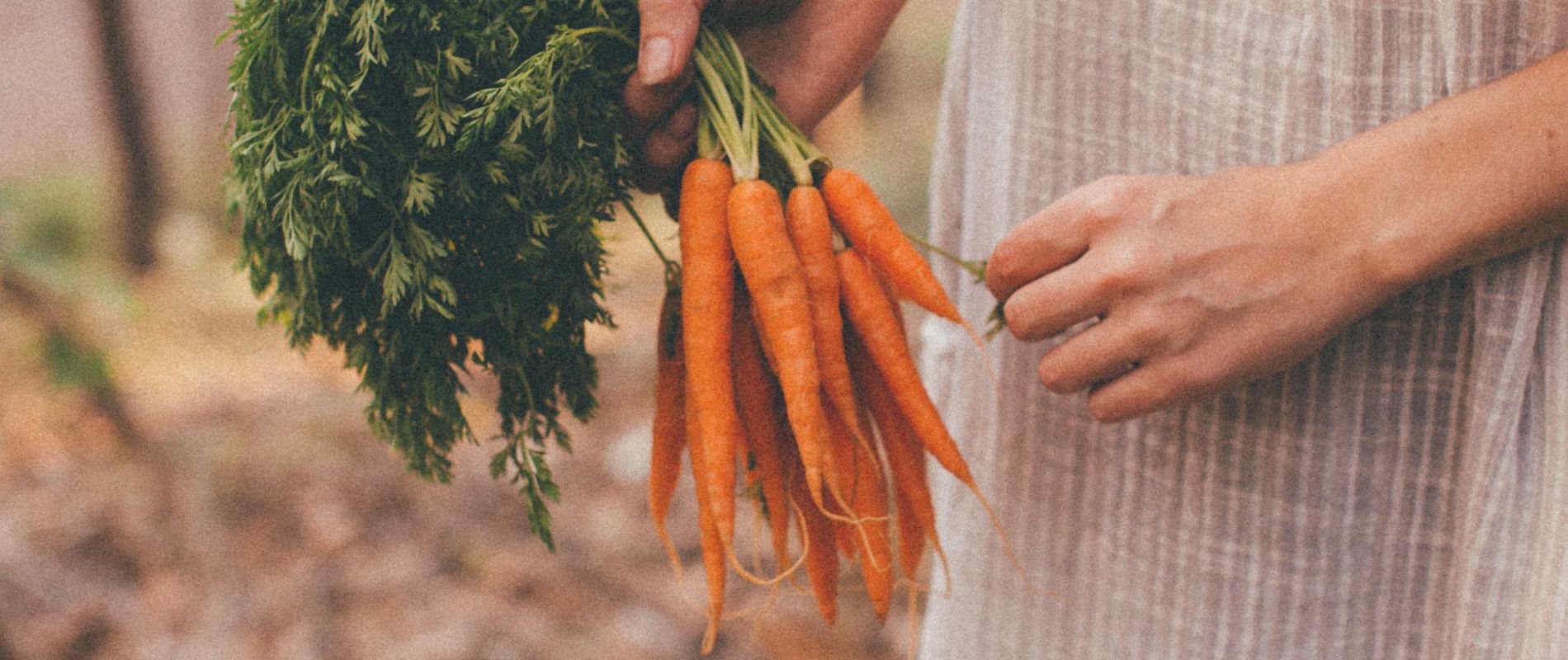Our team will be taking a very well-deserved break over the Christmas and New Year period. Be sure to pop in and collect your remedies before we close at 1 pm on Wednesday, 24th December, to ensure you have enough until we reopen our doors at 9 am on Friday, 2nd January in the new year.
Our team will be taking a very well-deserved break over the Christmas and New Year period. Be sure to pop in and collect your remedies before we close at 1 pm on Wednesday, 24th December, to ensure you have enough until we reopen our doors at 9 am on Friday, 2nd January in the new year.
Is Organic Really Better? | with Laura Bond
May 19, 2022 2 min read
In Australia, finding organic produce can be a bit of a mission. So, is it worth trekking to farmer’s markets, scouring the organic section at large supermarkets and paying more? The answer is a resounding yes.
Unfortunately, approximately 68 per cent of Australian food has been heavily sprayed, often with numerous pesticides. More than 80 of the chemicals used in Australia have been prohibited in France, Germany and other member countries of the European Union [1]. This includes carcinogens, hormone disruptors, and chemicals that the World Health Organisation has classified as highly hazardous or extremely dangerous.
Weed-Killer for Breakfast?
Glyphosate, the main chemical in RoundUp, has been found in non-organic breads, cereals and even baby-rice, according to the 2019 Total Diet Survey from Food Standards Australia New Zealand (FSANZ). [2]
This so-called ‘safe’ weedkiller, has been linked to infertility, gastrointestinal disorders, Parkinson’s, Crohn’s and more according to research from Dr Stephanie Seneff, a senior scientist at MIT. [3]
The good news?
By choosing organic you are significantly reducing your toxic load and benefiting your body. In fact, studies show that it only takes one week of switching to organic for levels of certain chemicals to be undetectable in the urine [4]. In addition to avoiding chemicals by choosing organic, you’re also reaping extra benefits. Organic fruit and vegetables also boast up to 69 per cent more antioxidants according to a major review of 343 peer-reviewed studies [5].
Can I just wash and peel non-organic fruit and veg?
No! Many pesticides are designed to stick to plants so they don’t wash off in the rain. Other pesticides, including organophosphates are known as systemic pesticides meaning they penetrate through the food, so washing won’t help. While peeling fruit may reduce certain pesticides, it also means removing some of the goodness. Apple peel, for example is rich in vitamin C as well as quercetin, a compound which helps reduce inflammation in the body. Plus, the skin of fruit contains fibre, which helps slow the rate sugar is absorbed into the body, therefore helping to regulate blood sugar balance.
Check out the list of the clean 15 and dirty dozen below showing the fruit and veg with the highest and lowest pesticide residues. Using this helpful chart as a guide[6], means you can spend on things like strawberries, apples and bread, and save on fruits like avocados and bananas.
You can book a one-on-one consultation with Laura Bond, book via our website or call us on 08 646 88149. Laura provides meal plans and recipes as part of her consultation.
[1] http://ntn.org.au/wp-content/uploads/2012/05/FINAL-A-list-of-Australias-most-dangerous-pesticides-v27-1.pdf
[2] https://thenewdaily.com.au/news/2019/07/20/roundup-food-cancer/
[3] https://www.mdpi.com/1099-4300/15/4/1416
[4] https://www.researchgate.net/publication/7322096_Organic_Diets_Significantly_Lower_Children%27s_Dietary_Exposure_to_Organophosphorus_Pesticides (March 2006, Environmental Health Perspectives)
[5] https://news.wsu.edu/2014/07/11/major-study-documents-benefits-of-organic-farming/#.VkHzq0s74zl
[6] https://www.buildingbiologywa.com.au/single-post/2017/09/08/top-20-australian-foods-for-pesticide-residue
Also in Journal

Why Consider Stool Testing For Children? | with Michele Grosvenor
December 08, 2025 3 min read
Read Morejoin the family
Receive exclusive wellness content curated just for you, delivered straight to your inbox. Get the latest insights from the Floralia team of experts and be the first to know about product launches, programs, research, treatment offers, and VIP events.

Festive Season Online Orders.
Our team are taking a well-deserved break over the festive season until January 2nd.
Any online orders placed between December 24th and January 1st will be lovingly prepared and dispatched as soon as possible once our team returns. Please allow an extra day or so for us to get your remedies and supplements. We appreciate your patience and understanding, and wish you a beautiful and restful holiday season.
If you have any questions, reach out to us via email at hello@floraliawellness.com.au, and we’ll respond to you in the new year.



